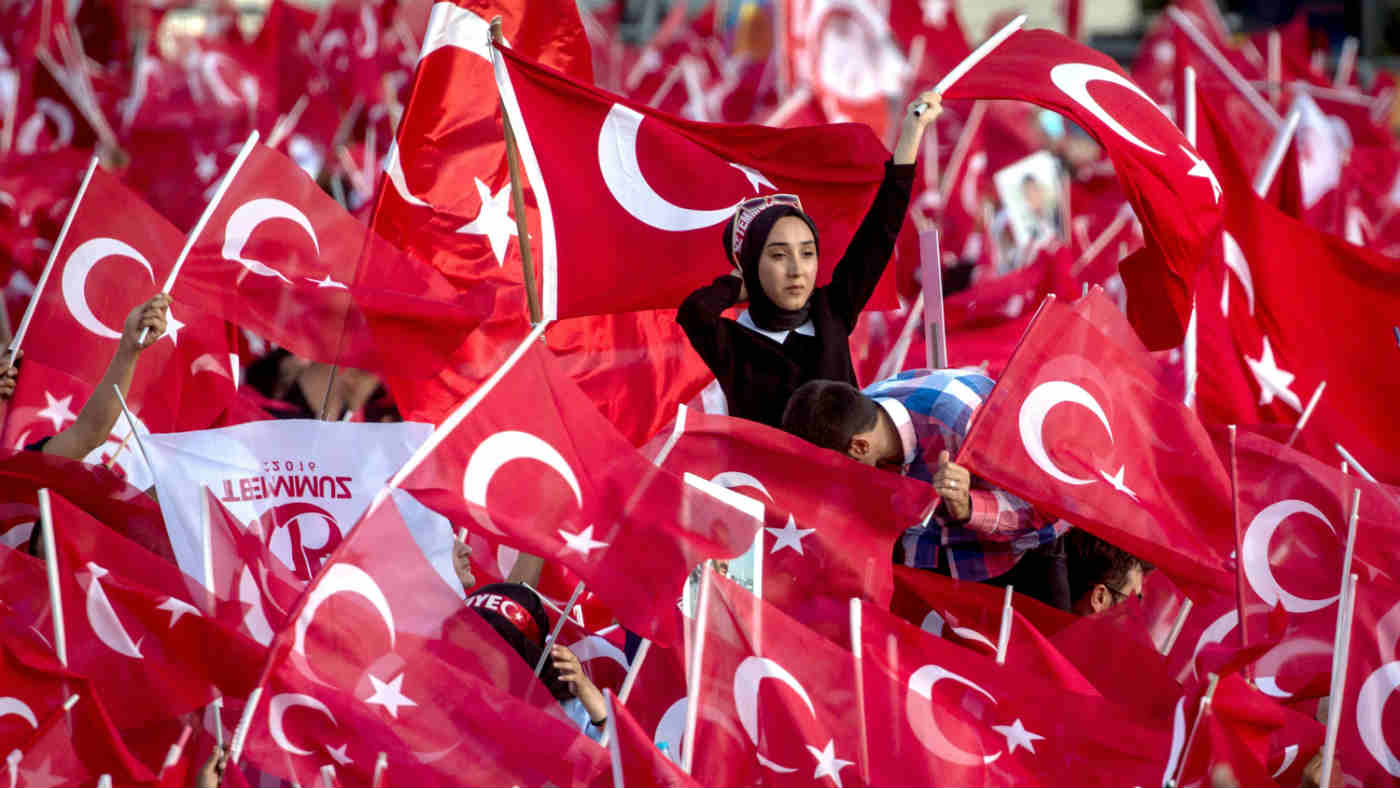End of the road for Turkey’s EU dreams?
European Parliament votes to suspend Ankara’s accession talks once again amid claims of human rights abuses

A free daily email with the biggest news stories of the day – and the best features from TheWeek.com
You are now subscribed
Your newsletter sign-up was successful
Turkey’s hopes of joining the European Union are growing ever dimmer after lawmakers in the European Parliament this week voted in favour of suspending accession negotiations.
The Foreign Affairs Committee called on the European Commission and member states on Wednesday to formally halt the talks, citing Turkey’s disregard for human rights and civil liberties, influence on the judiciary, and disputes over territory with Cyprus and other neighbours.
The resolution was adopted with 47 votes in favour and seven against.
The Week
Escape your echo chamber. Get the facts behind the news, plus analysis from multiple perspectives.

Sign up for The Week's Free Newsletters
From our morning news briefing to a weekly Good News Newsletter, get the best of The Week delivered directly to your inbox.
From our morning news briefing to a weekly Good News Newsletter, get the best of The Week delivered directly to your inbox.
Committee chair Marietje Schaake said the Parliament had sent a “crystal clear” message that EU leaders “attach consequences” to Turkish President Recep Tayyip Erdogan’s “grip on power”.
“Cooperation between the EU and Turkey on such issues as security, trade and migration is key, but needs to always be conditional on respect for human rights and democracy,” she added.
Criticising the decision, Turkish Foreign Ministry spokesperson Hami Aksoy said: “It is absolutely unacceptable that the non-binding, advisory draft report is calling for a total suspension of our accession talks to the EU.
“We expect the necessary corrections to be made and the final report to be more realistic, impartial and encouraging. Only such a report will be taken into consideration by our country.”
A free daily email with the biggest news stories of the day – and the best features from TheWeek.com
Such demands appear unlikely to be met, with the EU report suggesting that Turkey’s proposed membership is “impossible at this stage”.
So following decades of negotiations, is this the end of the road for Turkey’s European dream?
Where did it begin?
Turkey has been trying to obtain full membership to the EU - previously known as the European Economic Community (EEC) - since 1987. After making a series of policy reforms, Turkey was declared eligible to begin talks in 1997, and formal negotiations began in 2005, after then-prime minister Erdogan abolished the death penalty.
Subsequent talks have stalled on a number of occasions, as Turkey attempts to iron out what the EU sees as discrepancies between its own political values and those of Ankara.
One of the key stumbling blocks is the issue of Cyprus. Turkey invaded the island just five days after the Cypriot government was overthrown in a military coup orchestrated by the nationalist Greek government in 1974. Turkey still occupies the northern half of the island, which it refers to as the Turkish Republic of Northern Cyprus.
Currently, no countries other than Turkey recognise the republic as a sovereign state. The EU is calling on Ankara to open up traffic from the Greek Cypriot part of the island under a deal known as the Ankara protocol, while Turkey says the EU should end its blockade of the Turkish Cypriot enclave, Reuters reports.
The Cyprus issue is mentioned in the new European Parliament report, which says the committee welcomes “the efforts under the auspices of the UN secretary general to resume negotiations on the reunification of Cyprus” and “asks the EU and its member states to play a more active role in bringing negotiations to a successful conclusion”.
What is the issue now?
Turkish pro-government newspaper Daily Sabah says the EU has “frequently accused Turkey of drifting away from European values and democracy” in recent years, particularly in the wake of a failed coup d’etat against Erdogan in 2016.
In the year following the overthrow attempt, Erdogan’s proposals to expand his powers and reinstate the death penalty saw the European Parliament again calling for accession talks to be suspended.
At the same time, Swedish lawmakers accused Turkey of war crimes against its Kurdish community, reports The Independent.
This week’s decision by the Foreign Affairs Committee appears to have been dictated by similar issues, indicating that little has changed.
But Turkey has also distanced itself from Europe in recent years. In 2017, Erdogan told BBC World’s HardTalk programme that his country was ready to “stand on its own two feet”, with the majority of Turkish people no longer “wanting the EU any more”.
Anger over the EU’s stalling has also led to accusations of xenophobia against the Muslim-majority nation. An op-ed in the Daily Sabah this week says: “Turkey’s anti-terrorism policies have been highly criticised by its Western counterparts, which are actually the same policies that make the European continent more secure.
“Full membership possibility has been left out, but to be honest, is this the real reason behind it or should we read between the lines?”